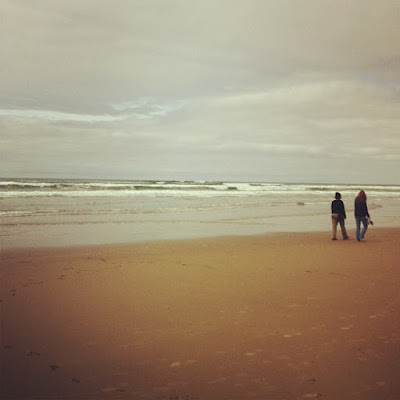Today's post is written in remembrance of Mikaela Lynch, a nine-year-old girl with autism, who wandered away from her family's vacation home on Mothers' Day. Her body was later found in a nearby creek*. My heart breaks for her family and friends.
I was a dreaming forest tree,
You were a wild, sweet bird
Who sheltered at the heart of me
Because the north wind stirred
--From To a Child, Sophie Jewett
A nine-year-old autistic child was found dead in a creek this week. I don't know this family, what their daughter was like, what happened on that day. But I do know that this situation is my number-one fear for Soren, hands down. And it's not an irrational fear.
Wandering is a huge problem for autistic children. According to research cited by t
he Autism Wandering Awareness Alerts Response and Education (AWAARE) Collaboration,
- Roughly half of children with autism try to "elope" from a safe environment. This rate is four times higher than that of their unaffected siblings.
- Accidental drowning accounts for 91% total U.S. deaths reported in children with autism subsequent to wandering,
- 32% of parents reported a “close call” with a possible drowning
As you can see, wandering and drowning are huge dangers in the autism community. The urge to run away and the draw to water can be overpowering for our kids.
We cannot and must not blame this child's parents. We don't know all the details of the situation, but we do know the scary statistics, and that odds are, keeping their child safe was a huge challenge, as it is for most of us parents of autistic children. Mikaela's family is grieving, and this probably was their worst nightmare.
Here's what I want you to know about the reality of our world, and why this so easily could have been our tragic situation.
Constant hand-holding.
Erik going after Soren, after he walked fully clothed into the water during a hike.
Constant climbing.
Sprinting.
- Soren has no concept of where our yard is and where it ends. Fences look like climbing toys. Climbing, especially precarious climbing, is big fun for him.
- Soren, at five, has most gross motor skills of a seven-year-old. He is FAST, even in bare feet. But he has the common sense, I'd guess you call it, or at least impulse control, of an 18-month-old. It's a dangerous combination.
- We are very, very vigilant about safety, yet my child has done the following, within seconds of my turning away:
- let himself out of the backyard gate (now childproofed, as much as it can be) and ran down the alley and into the street
- climbed over the five-foot backyard fence
- climbed up the fence to walk along the top of it while holding onto the neighbor's gutters
- ran down the sidewalk while we were all getting in the car. It took 3/4 of a block for us to catch him
- jumped fully clothed into the deep end of the pool as we entered our vacation rental in Hawaii
- climbed out of a cracked second-floor window onto our highly pitched roof (while I ironically had locked him inside my bedroom with me for safety as I took a shower).
And now that my heart is racing after typing that list, it's time to take action. Here's what I will do this week to continue to try to keep my child safe:
- Research GPS/tracking solutions (again).We need a system that Soren cannot take off his body (clothes-based solutions aren't practical).
- Contact all neighbors personally with a summary of Soren's risks and a recent photo of him. Give them specific steps to take if they ever see him alone.
- Research alerting the local police precinct about Soren and his risks.
- Let family and friends know that he's more likely to flee when there's a family gathering (because of stress/chaos) and when in their care. AWAARE reports that 23% of total wandering-related deaths occurred while the child was in the care of someone other than a parent.
And there are things you can do, too:
- If you see a child alone in the neighborhood, one you haven't seen alone before, take action. Get the child to come with you AND call police for help locating parents. Do not let that child continue alone, whatever it takes (holding hands, getting another person to help, etc.). Yep, I'm asking you to risk a little embarrassment on the off chance this is not an emergency. It is worth it.
- If you have a block watch group, discuss whether there are any special needs children or adults in the area and determine what their safety risk factors are.
- If your family member is the one with autism, take special care when he or she is in your care. This especially applies if two adults or more adults are caring for the child. That's actually a dangerous situation, because often it's not clear which adult is in charge when. Announce to the other caregiver if you "have the con," as we do in our house, to make it really official.
I guess what I want you to know is that there is this additional fear that parents of autistic kids bear, one that makes us always on edge. We never really let our guard down. Odds are stacked against us. And it would be great if we could count on friends and neighbors--strangers, too--to notice when a child is alone and wandering. Knowing that you're watching and acting would really help.
And certainly, blaming these devastated parents without knowing the facts is just a burden they can't bear.
*As I wrote this up on Sunday, there was news of yet another missing autistic child, this time an 8-year-old boy in Florida, found dead in a body of water. My heart is breaking again. These poor families.

















